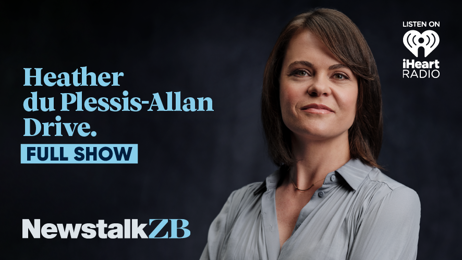The Police Association has slammed the Government's three-year public sector wage freeze as an "unacceptable bombshell".
This morning it was announced public sector workers earning more than $60,000 could only expect pay increases in "exceptional circumstances" while those on more than $100,000 won't get a cent more over the next three years.
It came after last year the public sector was asked to have nil or minimal pay increases until next month.
The Government says the extended pay freeze is to reduce debt from the Covid-19 response, but the Public Service Association (PSA) said it punished workers "after a year of sacrifice, hard work and success protecting New Zealanders from Covid-19".
Police Association president Chris Cahill said the announcement was dropped at the very moment the Police Association sat down with police to begin negotiations on the 2021 pay round.
It was "absolutely rejected by the association as it in no way demonstrates the ability of a government to bargain in good faith", he said.
"It ignores the reality of the current economic times that loyal Kiwi workers are facing as they, in their private lives, grapple with record house prices and out-of-control rents. Inflation is also on the up with financial experts widely expecting inflation growth in the coming months, let alone the three years of this freeze."
Such a freeze would consign workers to pay cuts in real terms, he said.
"For police officers the freeze comes when their work on the frontline of keeping all New Zealanders safe is becoming demonstrably more dangerous.
"Calls for mental health and suicide-related emergencies are growing, family violence callouts are up 11 per cent year-on-year for the past four years, gang numbers are at an all-time high and organised crime is at such a peak one billion dollars in assets have been seized in the last decade, and the threat and/or use of firearms are now almost a daily occurrence in policing."
The Association of Salaried Medical Specialists Toi Mata Hauora said the ongoing public sector pay restraint was a "kick in the teeth" to senior doctors and dentists who keep core health services going and have kept New Zealanders safe and cared for during the Covid-19 pandemic.
Public Service Minister Chris Hipkins has been approached for comment.
Finance Minister Grant Robertson said this morning the measures were due to the Government needing to reduce Covid-19-induced debt, for polices like the wage subsidy.
Hipkins this morning said any increases would be targeted to lower-paid public servants, largely those earning below $60,000, who account for about 25 per cent of the public sector.
Those earning between that and $100,000 could expect increases only in "exceptional circumstances".
National's spokesperson for Public Service Mark Mitchell said the freeze was due to the Government allowing the number of "Wellington bureaucrats to swell up to an unsustainable size".
"If Labour wants to reduce costs it only has to look at itself.
"Salaries for Wellington bureaucrats have increased by $1.3 billion in just three years of a Labour government. That's $300 million more than they increased under National over almost a decade.
"Our teachers, nurses and police officers worked tirelessly during the pandemic to keep us safe, to keep us healthy and to continue educating our children.
"It's totally unacceptable that the Government has now signalled that their pay will be frozen for three years and it has had an immediate impact on pay negotiations for our police officers.
"The Government needs to reconsider and reverse immediately this pay freeze and take responsibility for out of control public sector growth.
"It shouldn't be penalising our teachers and nurses because of its incompetence."
The PSA, which represents almost 80,000 workers, said they felt "betrayed".
"In our hospitals, in testing labs and on our borders, PSA members did the hard work required to push Covid-19 out of this country," national secretary Kerry Davies said.
"It is unacceptable that after 12 months of pay restriction these workers are told to swallow it for another two years."
The median salary for a PSA member is $59,000 a year, and 80 per cent earn below $75,000 annually, Davies said.
Border and MIQ personnel have spent the past year under tremendous pressure, working above and beyond normal expectations.
The median salary for a Customs Officer is $59,000 a year. Biosecurity officers earn $63,000, quarantine officers $70,000 and immigration officers $53,000.
Government pay restrictions will be a tough pill to swallow for the border workers, and the many public servants who supported business owners and workers through lockdowns and their flow-on effects.
"The Government can tell employers not to offer pay increases, but it doesn't seem able to limit increases in the cost of living," Davies said.
"Public servants are more likely to rent than most New Zealanders, and rents and house prices continue to skyrocket."
Hipkins said the measures would not affect work within the Public Service to close gender and ethnic pay gaps.
"The guidance is consistent with the decision last year by the Remuneration Authority that ministers and MPs would not be getting pay rises for three years because of the Covid-19 economic environment," Hipkins said.
"The Public Service Commissioner, who sets the pay of Public Service chief executives, will also not be increasing their pay."
Asked what impact the freeze could have on higher-paid staff and potentially moving to the private sector, Hipkins said the private sector too was experiencing pay freezes.
Public sector wages over the past few years had also outpaced the private sector, and this would allow it to "catch up", he said.
The Government was also "cracking down" on the use of what Hipkins called a "public consultant culture", he said.
"Where people are being brought in to do work where the public service should have capability to do internally it is unjustified. We are dialling that back."
Asked if having their wages frozen at $61,000 for the next three years was enough for someone with a family to live in Wellington or Auckland, and to even think about buying a house, Robertson said the Government had other measures to address those issues.
"With our Covid response we have borrowed significant money and need to show leadership in what we are doing so by the middle of the decade we can reduce our debt."
Take your Radio, Podcasts and Music with you










